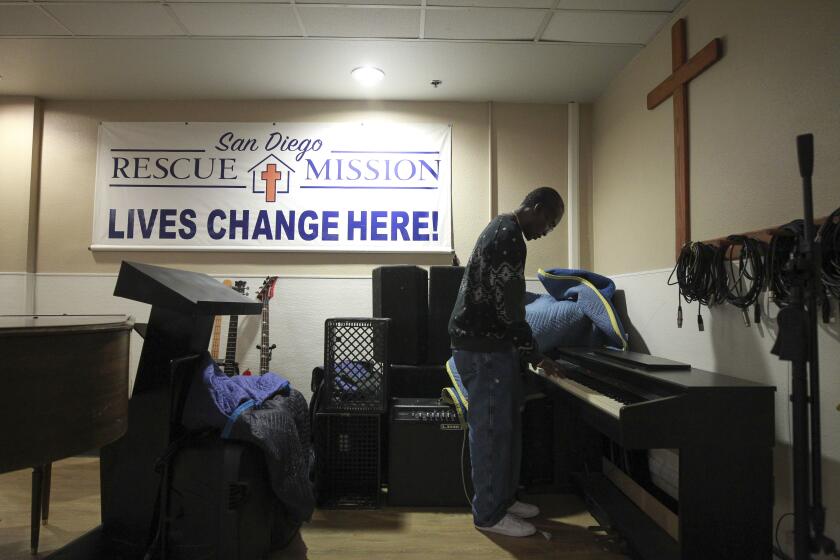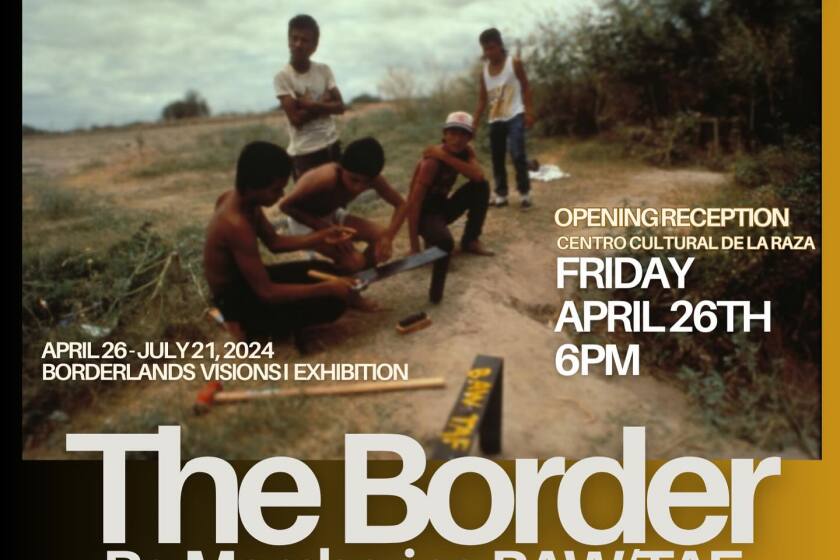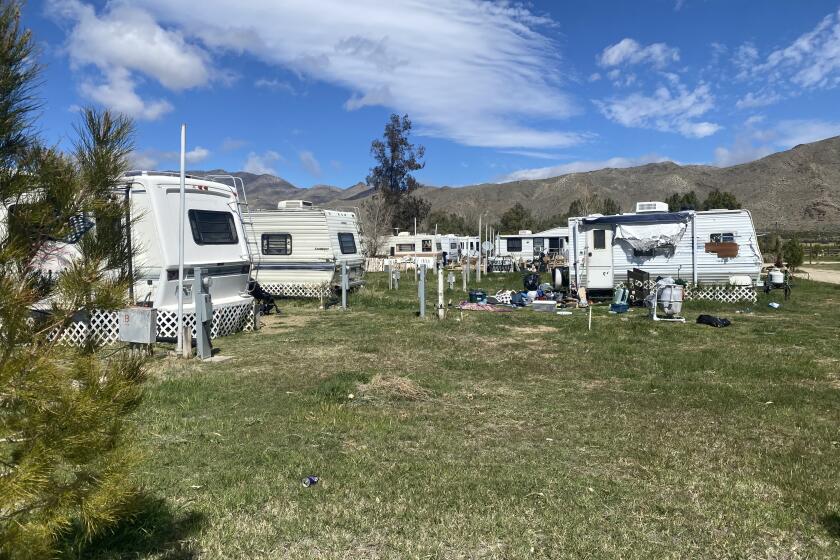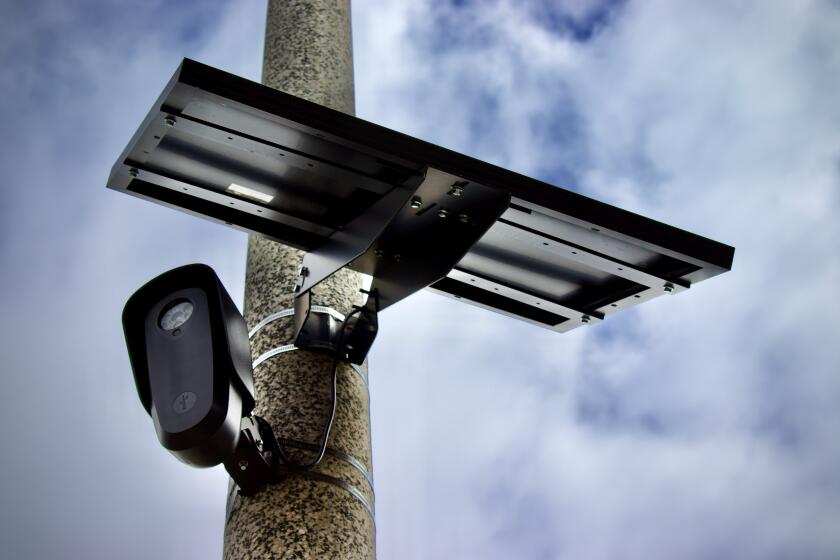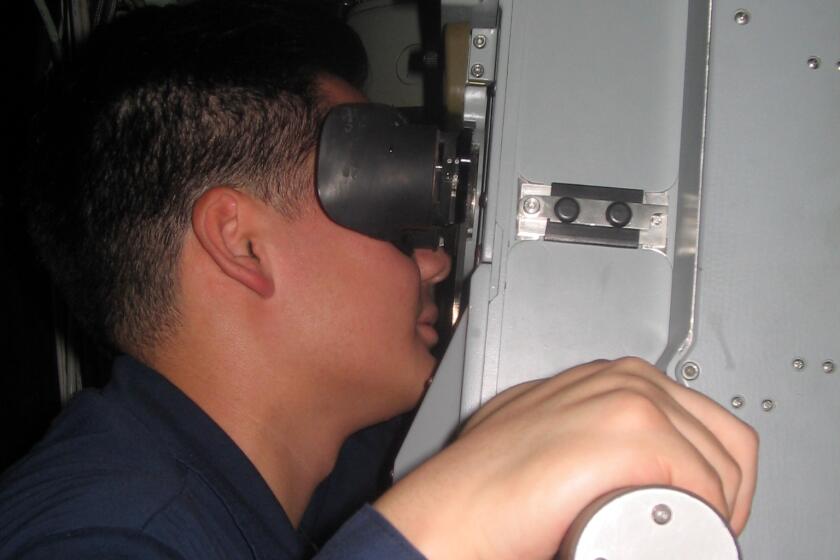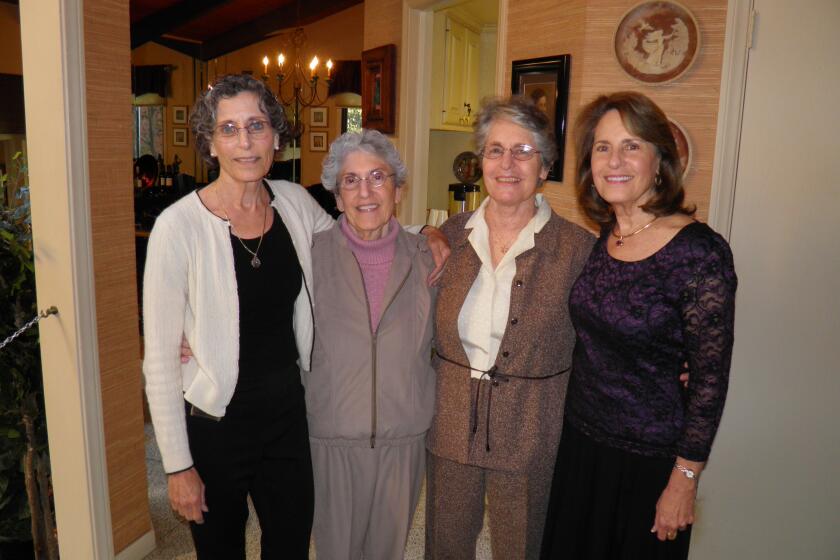Opinion: Death forces us to face our darkest questions. In sobriety, I chose light.
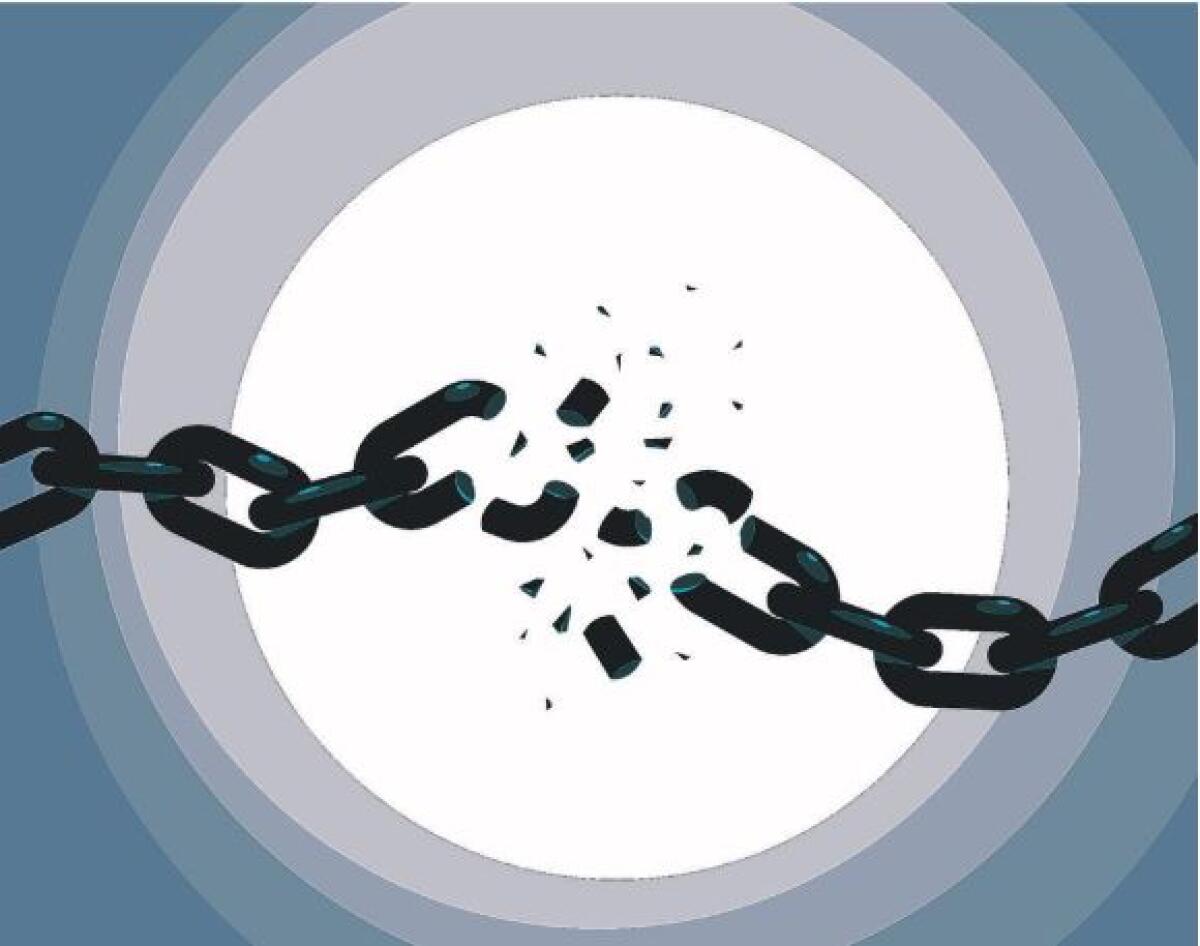
When I started my drug recovery, helping other people was the furthest thing from my mind.
Vasquez is a financial analyst and editor and lead illustrator at jeawok.com and he lives in Clairemont.
I don’t think of myself as an admirable person. When you have a story like mine, sometimes people want to use your success as inspiration or want you to be puppeteered to tell their best version of your story.
I’m just thankful to be alive.
Internalizing the idea that I probably should be dead from the brutal accumulation of bad decisions from my rebellious adolescence is difficult. I don’t know if divine intervention has anything to do with my recovery, but I do know that the likelihood of surviving a lifetime of drugs, alcohol and violence is slim. I was 21 when my father passed away unexpectedly, and throughout the next few years I battled forgiving him while also feeling unreasonable undeserved guilt from letting him die.
I always thought God was going to drop from the sky to rescue me from myself as if I was going to have an epiphany and my pain would suddenly go away. But that day never came.
I continued to stuff the agony of my grief down into my most hidden crevasses by wearing a mask and a fake crooked smile everywhere I went. That was three years ago before I began my journey to recovery. After some bumps, scrapes and a few relapses, I made a serious decision to choose sobriety as my permanent lifestyle.
It’s been rewarding, but it doesn’t come without its share of challenges.
As a man in our society, I know seeking help can be frowned upon. Especially as Americans, we are supposed to pull ourselves up in the face of adversity. But that idea at times is a destructive fantasy. Society wants you to be a “man” before it wants you to simply be human.
Stuffing your feelings and running away are the coping mechanisms of a child. An adult confronts their challenges head-on in the face of fear. Seeking help for my mental health, grief and addictions are by far the manliest things I’ve ever done.
I took back control of my life.
Seven months passed after making my decision to get clean, and I still hadn’t told my mom. On a subliminal level, this was a way for me to keep substances in my life. If she didn’t know I had a problem, I didn’t have a problem.
I was afraid that she would chastise me and hurt my feelings, putting me lower than I already was. When I finally decided to tell her, she forgave me the moment it left my lips and said “We are gonna beat this.” Her forgiveness helped me forgive myself, and once my family and friends knew about my problems it was like the cavalry arrived.
Friends can also be challenging because they take us back to our childhood selves, constantly seeking their approval and validation. The thought “If I quit drinking and partying, will they still want to be my friends?” kept running through my head, and to say it was an easy process to convince them of my decision would be a lie. The hardest part of sobriety for me was surrendering to the fact that sometimes people around you simply aren’t going to understand you, and that’s OK. You don’t have to prove anything to anyone.
When I started my drug recovery, helping other people was the furthest thing from my mind because I selfishly just wanted to save myself from death without an afterlife.
I was so hopeless that the fear of not existing was the only thing keeping me alive: not my family, not my friends. I was a man without purpose.
I had gotten sober, but I still had this rage and anger inside me so a friend recommended a grief recovery program to fix what still felt broken. Reluctantly, I kept showing up for the program and putting in the work. Even though I didn’t want to, I knew I had to. At last, the weight of my father’s death finally began to dissipate, and I began to lean into my spirituality, which put my life in complete harmony.
I had coped with my uncomfortable truths, and after two years, I now help facilitate the group so I can be there like my community was there for me.
The hardest part about death is it forces us to face our darkest questions, but in reality it’s just another part of life. There’s no way of going around your grief. You have to go through it. This journey doesn’t make the pain go away, but it makes you stronger.
Get Weekend Opinion on Sundays and Reader Opinion on Mondays
Editorials, commentary and more delivered Sunday morning, and Reader Reaction on Mondays.
You may occasionally receive promotional content from the San Diego Union-Tribune.
